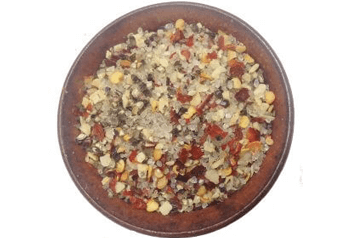What is Salt?
Salt is the opposite of sugar. Sugar tastes sweet, whereas salt tastes bitter. Salt is a mineral which is primarily composed of two elements or compound, i.e. sodium (NA+) and chloride (Cl-) belonging to the chemical seen as in crystalline form. It looks like a rock salt in nature. Salt is also known as kitchen ingredients because it is the most necessary component of consumption essential for human life.
Also, too much salt is not suitable for health; it raises your blood pressure, but if you eat less salt can improve your health. So, salt is said to be life. Small in substance but significant at the soul/human experience. In this article, I am writing the difference between kosher salt and table salt, which is better?.
What is Kosher Salt?
Kosher Salt is known as koshering salt or kosher because it has a flaky structure that complies with the strict dietary standard law of your food habits. Its name was derived from Jewish culinary tradition and renowned as koshering for removing the blood from the meat. It mainly consists of sodium chloride. It may contain additive iodine. If you are somewhere in Australia and looking to buy Kosher Products, Baker Salts can do it for you.
It is less refined than table salt. However, it has larger flakes and doesn’t compact together as needly. So a pinch a little coarser and not a dense as well. Kosher Salt is used in the kitchen cooking, not at the table. It is mainly used for seasoning before, during, and after cooking meals that are great or good for a meal.
Have a different texture and burst flavor in comparison to regular table salt. It has a flat-shape plate and a hollow pyramidal crystal structure with a grain.
It is usually manufactured with a grain generally by an evaporative process under pressure between rollers in cubic form. Kosher Salt is the most versatile. So it is not as cheap as table salt but slightly more expensive.
The objective of kosher salt is to draw out the moisture from the meat and remove the blood from meat and make it perfect for use in cooking or the koshering process. Kosher Salt is necessary and essential available, and it offers economic benefits to the chefs in the kitchen and consistency with the advantage of health during the consumption of foodstuffs.
Amount/volume (measurement): Put/Add one and half teaspoon of kosher salt in the meat before cooking. Some examples of kosher salt: sating pasta water, Brining, Margaritas, etc.
Keshar salt has different types of the brand established for koshering, which are still prevalent in the kitchen for cooking: lightly smoked kosher salt, Morton kosher salt, and diamond crystal kosher salt.
The shape of kosher salt gently enhances their flavor and salts foods which have no iodine in tastes. So it is much better than regular table salt.
Table salt (Regular Salt)
Table salt is the most common regular salt, which is highly refined with high ground of impurities and trace minerals removed. Archaeologists found table salt about as far as 8,000 years ago in ancient. Mostly composed consists of pure sodium chloride approx 97% or higher. It may contain anti-clumping agents such as calcium silicate and additive, anti-caking agents, or iodine too.
It is highly refined than kosher salt and flows freely. It is used to table rather than cooking. It’s used for seasoning food and preserving food.
Table salt can give an attractive taste to foods and feeds cause it has a fine texture. It has small grains and cube crystals with water molecules trapped inside, smaller in size than kosher salt.
Typically mined from underground salt deposits and heavily processed by eliminating minerals with tracing elements. It is the most common cheapest salt among other salt and not more expensive.
Table salt’s objective is to maintain a healthy thyroid and help prevent iodine deficiency. Very necessary and essential in the human body to reduce the leading cause of disability and various health problems.
Amount/volume (measurement): Put/Add as per seasoning or enhancing the taster of food according to weights. Some examples of table salt: meat-packing, sausage-making, fish curing, etc.
Table salt does not have any type of brand because it is a common regular salt found in every table of the restaurant and kitchen.
Therefore, if you are not choosing to eat regular iodine-enriched table salt, make sure that you are eating other highs in iodine.
Now,
Find out the distinctions between kosher salt and sea salt in our next blog article, “Kosher Salt vs Sea Salt.”
